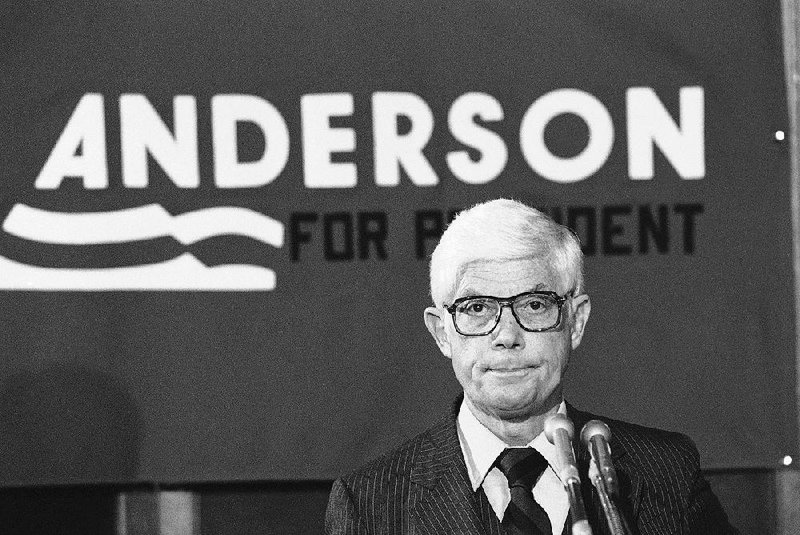CHICAGO -- Former longtime Illinois Congressman John Anderson, who ran for president as an independent in 1980, has died at age 95.
The World War II veteran died Sunday night in Washington, his daughter, Diane Anderson, said.
The 10-term GOP congressman originally sought the Republican presidential nomination in 1980, but he later waged an independent campaign against Democratic President Jimmy Carter and Republican challenger Ronald Reagan.
His backers promoted his campaign style as "the Anderson difference," but despite it -- or perhaps because of it -- he never finished better than second in a Republican primary. That came in Illinois, his home state, which he had expected to win. When he did not, losing to Ronald Reagan by fewer than 12 points (Reagan was born in Illinois), he decided to run as an independent.
Drawing support from moderate to liberal Republicans and liberal Democrats and finding a receptive audience on college campuses, Anderson did well in the polls at the start. But Anderson's support drifted as voters turned to candidates who they believed could actually win the White House. On Election Day, Anderson received nearly 7 percent of the national vote.
Diane Anderson said her father became disillusioned with the direction of the Republican Party and what he saw as a move to the far right.
"He really, really believed the two-party system was broken in 1980," she said. "He wanted to express that, and he did."
Anderson was raised in a conservative home, the son of Swedish immigrants who read the Bible daily and attended church each week, and his strong faith remained a constant throughout his life, his daughter said.
She said he "evolved both personally and professionally on social issues" through the civil-rights movement of the 1960s, and was proud to cast the deciding vote in the House Rules Committee for the Open Housing Act of 1968, which prohibited discrimination in the sale, financing or rental of housing.
Anderson served as chairman of the House Republican Conference for 10 years before stepping away from the leadership post and his House seat to run for president.
For a while he had the national spotlight, a 58-year-old maverick whose prematurely white hair, horn-rimmed glasses and clearheaded presentation gave him the air of a genial professor who was not so much above the fray as he was unwilling to play by its rules.
Anderson refused to pander, telling voters in Iowa that he favored President Jimmy Carter's embargo on grain sales to the Soviet Union after it had invaded Afghanistan. He called for a gasoline tax of 50 cents per gallon -- when a gallon cost $1.15 -- to save energy.
Anderson was from Rockford, about 80 miles northwest of Chicago, and earned a law degree from the University of Illinois. He first won his congressional seat in 1960 and served in Congress until 1981.
Republican U.S. Rep. Adam Kinzinger, who now represents Illinois' 16th Congressional District, called Anderson an inspiration.
"He believed that his job was worth giving up in order to set a better example of realism in politics," Kinzinger said in a statement. "We are better for his candor, his focus, and his honesty."
Anderson is survived by his wife of 64 years, Keke, five children and 11 grandchildren. His family said a memorial service will be planned for early spring in Washington D.C.
Information for this story was contributed by Sara Burnett of the Associated Press and Adam Clymer of the New York Times.
A Section on 12/05/2017
